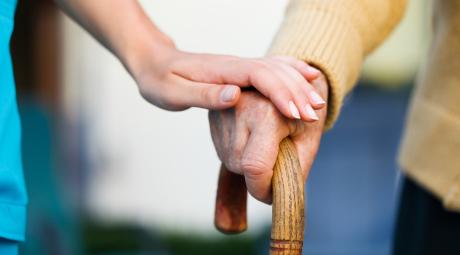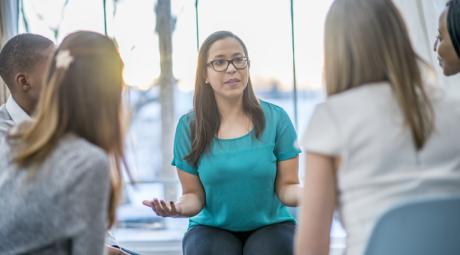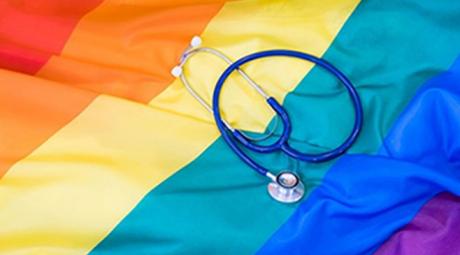New section
New section
New section
New section
These articles demonstrate how medical students and staff focus on well-being programs, methods, and activities to promote opportunities for flourishing in medical school.

Family caregiving is not simply an outside obligation that has no bearing on the workings of academic science, technology, engineering, mathematics, and medicine (STEMM) as it affects the lives of so many people working and studying in colleges and universities around the country.

Medical school is undoubtedly a daunting experience. The transition into this journey brings uncertainty, feelings of anxiety, and fear, despite the joy, excitement, and accomplishment.

The obvious next question is what can be done to begin changing the medical school experience for transgender students?

For the past couple of years, I’ve been struggling with a phenomenon known as arrival fallacy, which has been described as the “illusion that once we make it, once we attain our goal or reach our destination, we will reach lasting happiness."¹

When I was a first-year medical student, I was knee-deep in the whirlwind of academic challenges, especially as I geared up for my very first medical school exam.

In medical school, a staggering number of students encounter burnout—characterized by emotional exhaustion, depersonalization, and a dwindling sense of personal accomplishment.

Well-being programs are the hidden gems of 21st century medical education.

Rejection, once an unwelcome guest, has transformed into a catalyst for growth and redirection in our careers. While our initial reaction to rejection was reluctance, we have evolved to not only make peace with it but actively seek and advocate for it.

This is a question asked by many medical students who contact the Office of Disability Services at campuses across the world. A related question is also often asked by medical school faculty/staff: How could a medical student make it this far if they have a disability?

You have committed to this difficult and amazing profession because you care and want to make a difference. There is a way to do it well and stay well yourself.

Waking up in medicine is easy for some, but hard for many. And even for those who have it down pat, there are days when waking up feels more challenging than usual.

But one of the lessons I learned is easily accessible: we are not solely defined by how we have spent our time.

FREE — I was so happy and wanted to be there; my patients could tell. BELIEVE — What matters is that I know I am doing my best. KNOW — I am capable and have the spirit and humility to improve every day. HARD WORK — Helping the most incredible women I know: my patients.

The new “Detour” Student Interest Group (SIG) at the Keck School of Medicine of USC aims to increase visibility and decrease stigma related to the different routes a person can take to complete their medical school training.

Rigorous. Stressful. Competitive. Before a prospective medical student submits the application or is even admitted to medical school, these words become all too familiar.

Is all of this worth it? Will it provide me with a fulfilling and sustaining life? What do I have outside of medicine?

The medical school experience is like no other. It’s difficult to find the words that can fully illustrate the experience to someone who has not gone through it.

Supportive professors, deans, and the worsening of my health convinced me to be more vulnerable about my illness, and it was one of the best decisions I made.

“When I got accepted to medical school, I felt that I was finally at the finish line. But actually, I was just beginning the race.” — Sehr Kahn

“Am I really meant to be here,” you wonder. “How quickly will the school find out I am a fraud and they made a mistake admitting me?”